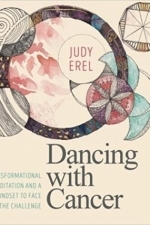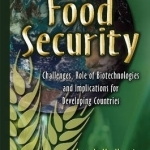Rape, Sexual Violence and Transitional Justice Challenges: Lessons from Bosnia Herzegovina
Book
It is estimated that 20,000 people were subjected to rape and other forms of sexual violence during...

Women's Emancipation and Civil Society Organisations: Challenging or Maintaining the Status Quo?
Christina Schwabenland, Chris Lange, Jenny Onyx and Sachiko Nakagawa
Book
Women are at the heart of civil society organisations, yet CSO research tends to ignore...

Lucky Seven: 7-Minute Workout Challenge Musical Interval Timer with RunKeeper Integration & more
Health & Fitness and Lifestyle
App
7 minutes to spare? That’s enough for a workout! LuckySeven is the best way to enjoy the...

Dancing with Cancer: Using Transformational Art, Meditation and a Joyous Mindset to Face the Challenge
Book
Combining the personal and the practical, this book mixes the author’s own cancer story with the...
mind spiritual leisure
David McK (3687 KP) rated Blood's Game in Books
Jan 30, 2019
This, however, would be the first time I had read one of Donald's novels that concerned a different central character, and that had a different setting: would it, I wondered, be more of the same, or would it have it's own 'feel'?
The answer, I can now say, is the latter.
Replacing Alan-a-Dale with Holcroft Blood, and told in the more traditional her-and-know third-person narrative (instead of the conceit of an elderly Alan recalling his youthful adventures with Robin Hood), this particular novel deals with the (attempted) theft of the Crown Jewels from the Tower of England during the reign of King Charles II, not long after the restoration.
While that (attempted) theft is carried out by Thomas Blood - who was caught red-handed but later, incredibly, was granted a pardon by Charles II - this novel does not have Thomas as the central character: rather, instead, we follow the fortunes of his youngest son Holcroft: a son who, throughout the course of this novel, becomes friends with Sir John Churchill, the future Duke of Marlborough (and Winston Churchill's direct descendant).
Whether true or not, young Holcroft is portrayed in this as suffering from a mild form of Asperger's Syndrome, able to easily code and decode correspondence sent to his master The Duke of Buckingham from his various spies and informants: a skill that comes in handy in this tale! I have to say, too, that the court of King Charles II comes across as incredibly decadent, full of scheming and back-stabbing rivals out wholly for themselves ...
I'd be interested in seeing where this series goes, especially as the next entry ([b:Blood's Revolution|36146468|Blood's Revolution|Angus Donald|https://images.gr-assets.com/books/1504033386s/36146468.jpg|57749834]) concerns itself - at least, according to the blurb at the back of this - with what is (in this country - Northern Ireland - at least) a very divisive and pivotal moment in English history.


